It seems, too, that Van der Hoef was inspired by some of the tools of his trade: his drawing instruments. The service’s handles look a bit like graduated arcs, and there are similarities with the compass as well. The English physicist and alchemist Robert Fludd (1574 - 1637) portrayed the two instruments in a way that seems to prefigure the basic lines of the 4300 tea pot.


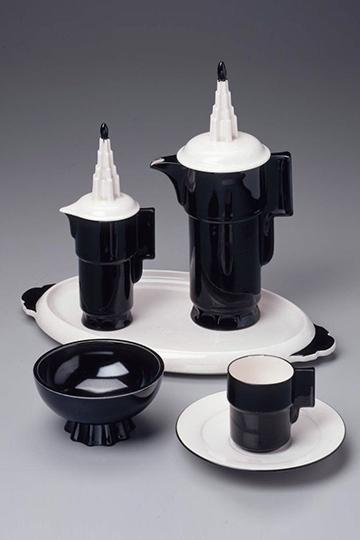
One year after 4300 Chris van der Hoef made a coffee service for the Plateelbakkerij Zuid-Holland that is quite exceptional. Here, the Far East seem to be combined with futurism. Hardly any copies of it are known to exist, however. To see the set in the photo you will have to travel to Boston, where it is in the collection of the Museum of fine Arts (and hopefully on display).

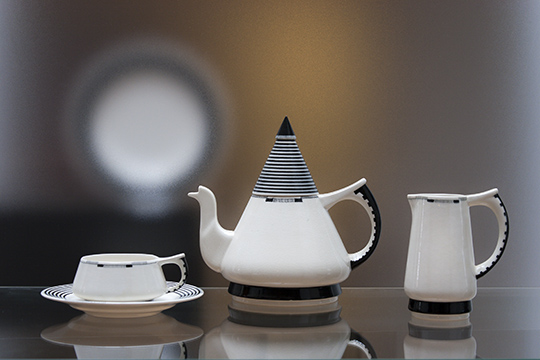
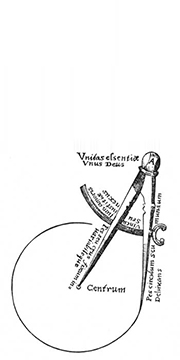
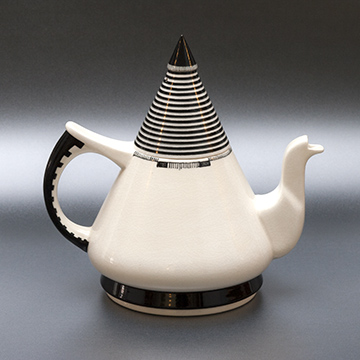
Leidelmeijer’s book also contains an article by the curator of the Museum Gouda, Hans Vogels, called ‘Van siervaas tot servies’ (From ornamental vase to china). He aptly remarks on the jolly character of Van der Hoef’s 4300 model. ‘Its decoration is restrained, in black and white only, but with playful, even humorous lines.'

Frans Leidelmeijer in his book 'n.v. Koninklijke Plateelbakkerij Zuid-Holland’ places 4300 in the same category as other ceramics designs inspired by the Amsterdam branch of the Nieuwe Kunst (New Art) movement. This ‘constructivist’ movement was characterized by its simple, almost austere lines and matching, usually geometric decoration. This model’s lines seem to him to be somehow inspired by Near Eastern architecture. Its shiny black-and-white surface, Leidelmeijer assumes, was inspired by the Wiener Werkstätte and - via this detour - the Scottish designer Charles Mackintosh.
Art Deco
In his book ‘Chris van der Hoef’ Bert Jintes praises 4300 as ‘in my opinion [...] one of the most original and successful earthenware sets for everyday use ever made in the Art Deco style, nationally as well as internationally.’ Its basic element is a truncated cone, that is provided with perpendicularly placed handles. Decoration is a prominent part of the design. ‘Very decorative and yet restrained.’
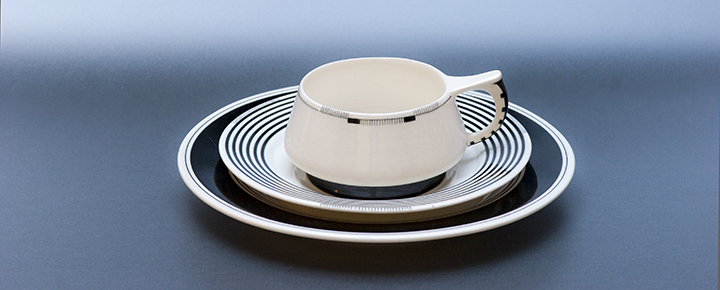
Chris van der Hoef
‘Dutch design’ at its best is found in the work of china and earthenware designers such as Chris van der Hoef, Edmond Bellefroid and Floris Meydam. It is with good reason that their creations have been collected by many museums.
In highlights from 100 years of Dutch design we take a closer look at the work of some of these Dutch star designers, to start with breakfast service '4300' by Chris van der Hoef.
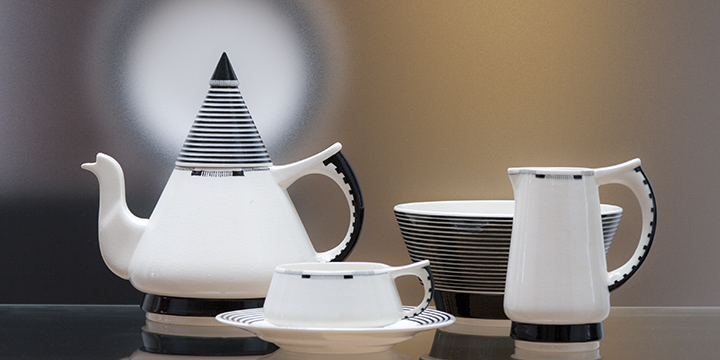
Highlights from 100 years of Dutch design
part 1: Chris van der Hoef: 4300
